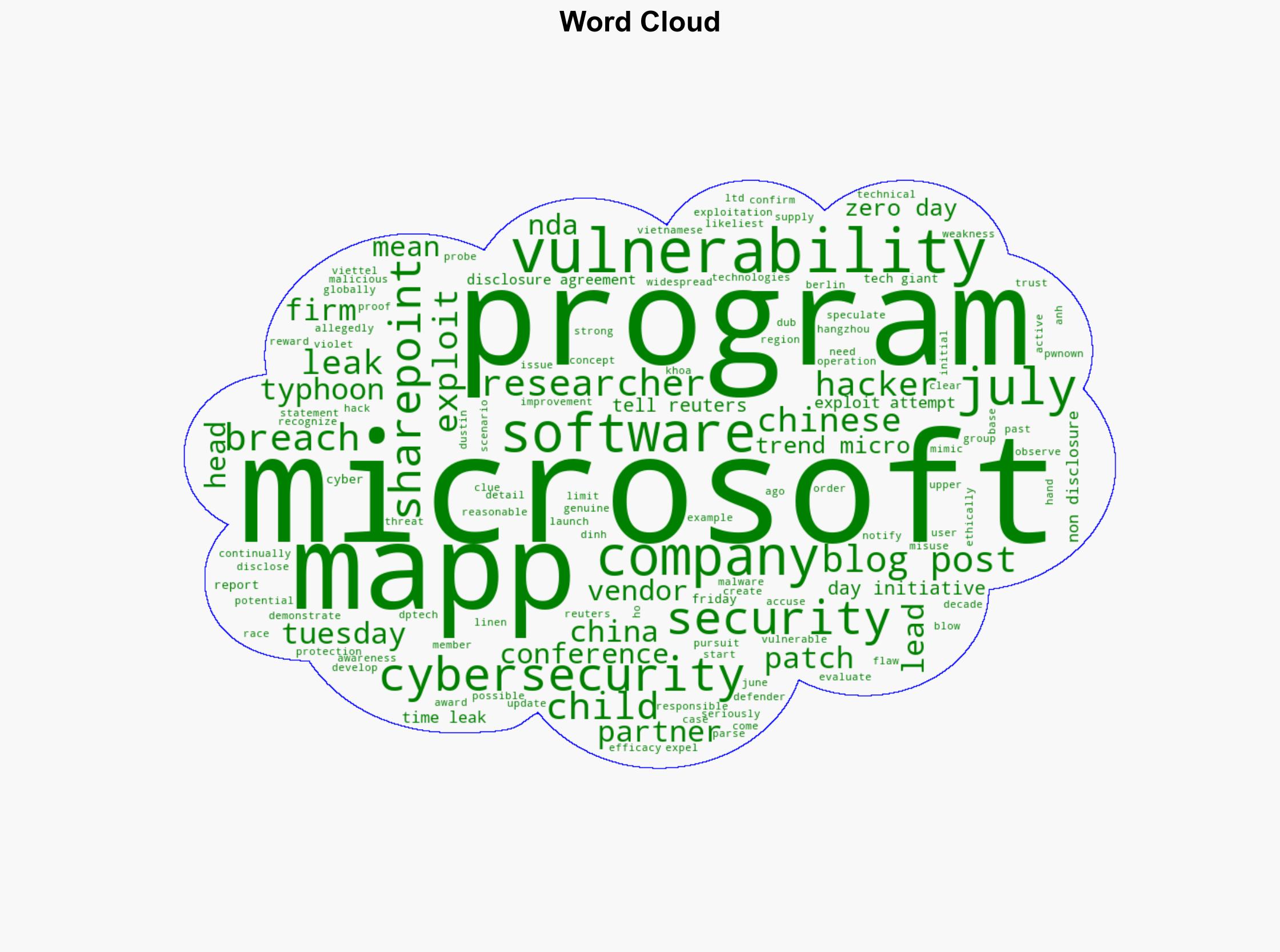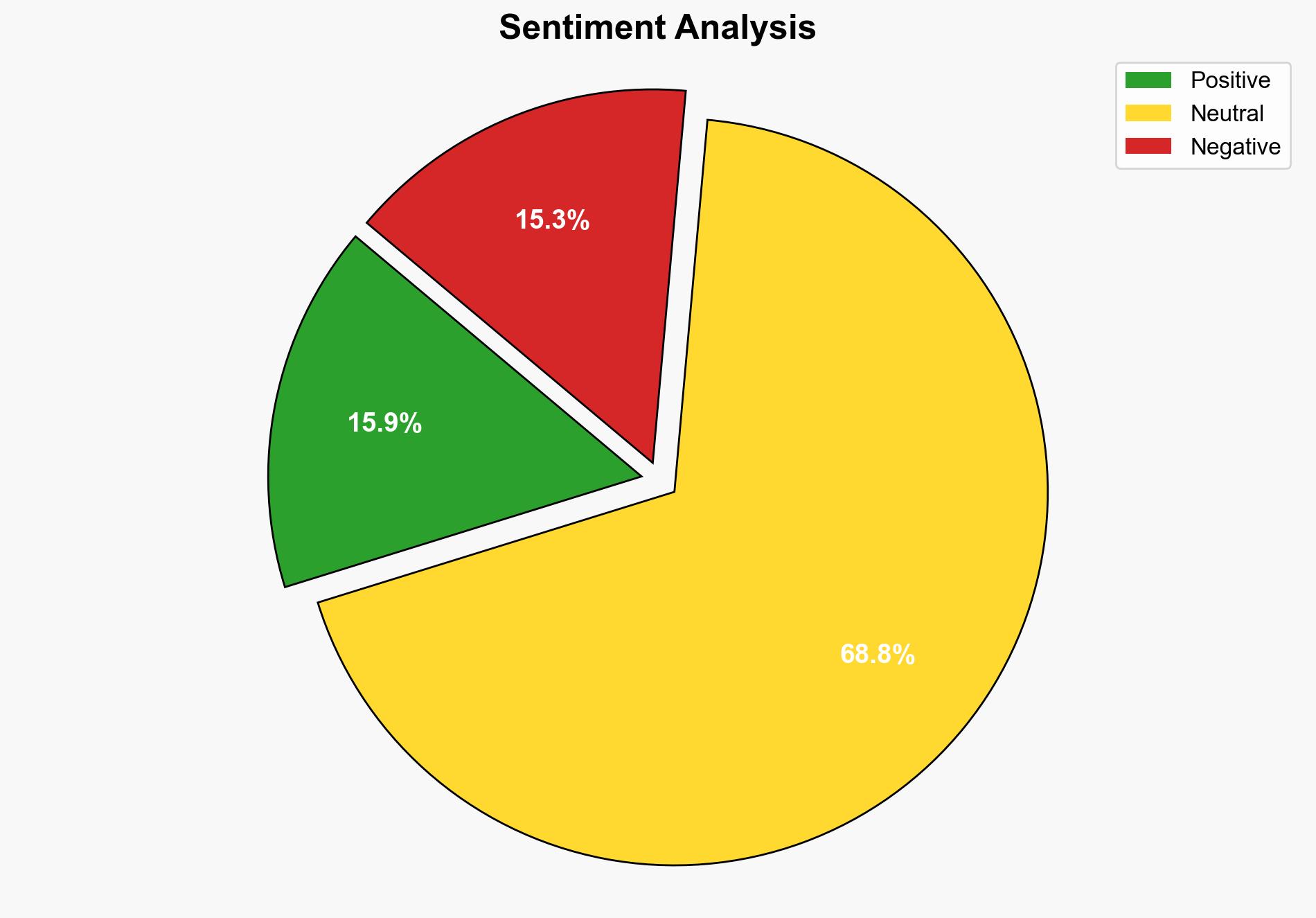Microsoft probing if Chinese hackers learned SharePoint flaws through alert Report – The Times of India
Published on: 2025-07-26
Intelligence Report: Microsoft probing if Chinese hackers learned SharePoint flaws through alert Report – The Times of India
1. BLUF (Bottom Line Up Front)
The most supported hypothesis is that Chinese hackers exploited a vulnerability in Microsoft’s SharePoint software, potentially learning about it through a leak in the Microsoft Active Protection Program (MAPP). Confidence in this hypothesis is moderate due to historical precedence and circumstantial evidence. It is recommended that Microsoft conducts a thorough review of its MAPP protocols and enhances its non-disclosure agreements to prevent future leaks.
2. Competing Hypotheses
Hypothesis 1: Chinese hackers exploited a SharePoint vulnerability after learning about it through a leak in the MAPP program. This is supported by the timing of the exploitation attempts and past incidents involving Chinese entities breaching NDAs with Microsoft.
Hypothesis 2: The exploitation of the SharePoint vulnerability by Chinese hackers was independent of any MAPP leak, possibly discovered through other means such as reverse engineering or independent research. This hypothesis considers the capabilities of advanced persistent threat (APT) groups to discover vulnerabilities without external aid.
3. Key Assumptions and Red Flags
– **Assumptions:**
– MAPP members are the primary source of the leak.
– Chinese hackers are the only actors exploiting the vulnerability.
– **Red Flags:**
– Lack of direct evidence linking the leak to MAPP.
– Potential bias in attributing the source of the leak solely to Chinese entities.
– Incomplete data on other potential exploiters of the vulnerability.
4. Implications and Strategic Risks
The exploitation of the SharePoint vulnerability could lead to significant cyber espionage activities, compromising sensitive data globally. This incident highlights the risk of insider threats and the need for robust security measures in information-sharing programs. Geopolitically, it could strain relations between China and affected countries, potentially leading to retaliatory cyber actions or policy changes.
5. Recommendations and Outlook
- Microsoft should enhance its MAPP protocols, including stricter non-disclosure agreements and regular audits of partner compliance.
- Conduct a comprehensive investigation to identify the source of the leak and take appropriate actions against responsible parties.
- Scenario Projections:
- Best Case: The leak source is identified and mitigated, preventing further exploitation.
- Worst Case: Continued exploitation leads to significant data breaches and geopolitical tensions.
- Most Likely: Microsoft strengthens its security measures, reducing the risk of future leaks, but some exploitation continues in the short term.
6. Key Individuals and Entities
– Dustin Childs
– Dinh Ho Anh Khoa
– Microsoft
– Viettel
– Trend Micro
7. Thematic Tags
national security threats, cybersecurity, counter-terrorism, regional focus





